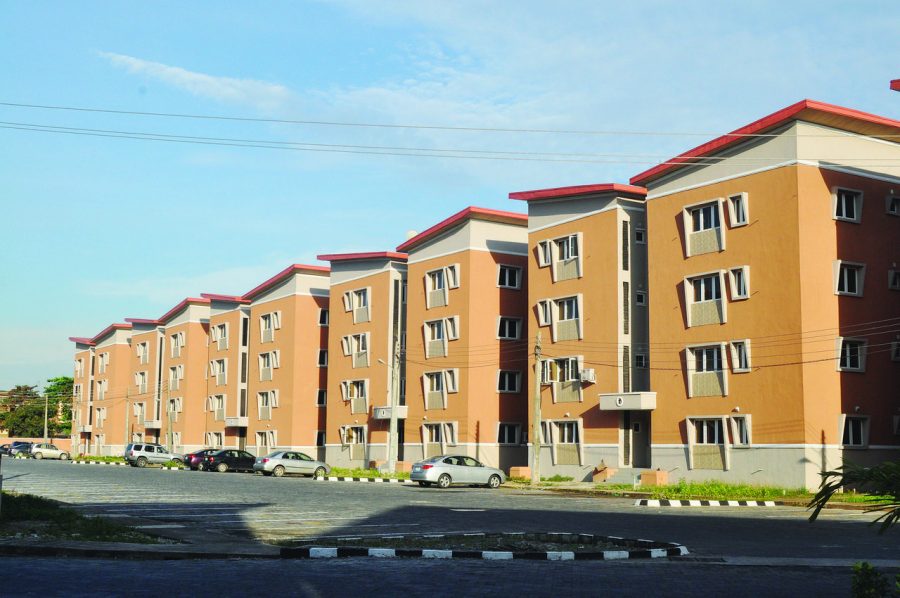There are 2 primary types of homeownership in the UK; freehold and leasehold. If you are aiming to buy a house or a flat, it is important to comprehend the distinction, especially if the residential or commercial property is in London where over a 3rd of all homes are leasehold residential or commercial properties.
Whether you're purchasing a separated house around Wandsworth, Wimbledon Village or South Wimbledon, or a house in Battersea or Putney, you need to understand precisely what sort of ownership you're investing in.
What is the distinction between freehold and leasehold? In this article, we'll break down the terminology and cover some of the things you ought to look out for if you are buying a leasehold residential or commercial property. We'll likewise share vital realities on the brand-new Leasehold and Freehold Reform Act, which is set to change certain leasehold guidelines - check out on for all the details.
What Is A Freehold?
Purchasing a freehold residential or commercial property gives the buyer sole ownership of both the structure and the land it sits on.
Most houses we offer in Wimbledon, Wimbledon Village, Coombe Hill, Kingston Hill and somewhere else in South West London are freehold residential or commercial properties.
Benefits Of Freehold
Owners of freehold homes can make any modifications they want to the residential or commercial property - as long as they adhere to preparing policies or, if required, obtain Listing Building Consent.
There are no ground lease or service charges to pay, no time limitation on your ownership of the residential or commercial property, and freeholders are not dependent on anyone else to maintain the structure.
What Is A Leasehold?
With a leasehold, the buyer owns the residential or commercial property for the duration defined in the lease arrangement. When the lease ends, ownership goes back to the freeholder. The lease agreement will mention the number of years left on the lease.
Although leaseholders own the residential or commercial property's internal area, fittings, flooring and walls, they do not own the land the flat sits on or the material of the building, consisting of the roofing system and external walls. As a result, leaseholders require consent from the freeholder to make changes or add an extension.
Most flats and homes are sold as leaseholds.
The Impact Of The Leasehold And Freehold Reform Act
On 24th May 2024, the Leasehold and Freehold Reform Act 2024 became law in England and Wales as part of the 'clean out' ahead of the general election. The majority of the procedures are yet to be presented, however key modifications to be familiar with consist of:
Redress plans - freeholders must sign up with one, and can be challenged if they stop working in their responsibility to the leaseholder.
Building management - it will end up being easier for leaseholders to assume management.
New lease purchase and extension criteria - more leaseholders will certify for the right to buy or extend their lease.
Longer lease extensions - increasing from a basic 90 years for flats and 50 for houses, as much as 990 throughout the board.
Ban on new leasehold houses - under the changes, brand-new houses should be sold on a freehold basis most of the times.
Some mooted modifications were dropped as the bill passed through your house of Lords, though they may still lead the way for future modifications. You can discover additional info in the UK government's Leasehold and Freehold Reform Bill explanatory notes, offered on gov.uk.
What To Consider When Buying A Leasehold Residential Or Commercial Property
Leasehold residential or commercial properties are a typical type of ownership, so there is no requirement to delay a purchase. However, there are some things you need to keep in mind.
1 Length Of The Lease
Lease length can vary considerably, so this is the first question you must ask about the residential or commercial property before choosing if it's the one for you.
A flat's original lease duration is likely to be a long duration - typically 99 years or 125 years and can be as high as 999 years. As time passes, the duration remaining on the lease decreases, so older residential or commercial properties may have much shorter leases.
Ownership of a leasehold home will revert to the freeholder once the lease runs out. Leases with 80 years or fewer are thought about brief. Anyone purchasing a flat with a short lease will find it harder to acquire a mortgage.
If you have actually set your heart on a flat with a short lease, you shouldn't write it off completely. Government reforms announced in 2021 make it less expensive and more available for leaseholders to acquire lease extensions, while the Leasehold and Freehold Reform Act should make the process even easier. You can likewise make it a condition of sale that the vendors start the process of extending the lease before you handle the residential or commercial property.
2 Extending The Lease
Most leaseholders get a lease extension long before it reaches absolutely no years. Extending a lease can be a complicated legal procedure - though the Leasehold and Freehold Reform Act aims to simplify it. The cost is decided by settlement between the leaseholder and the freeholder and depends on the residential or commercial property's value.

Until now, different kinds of residential or commercial property (flat or home) have gained from various standard extension lengths. However, brand-new federal government legislation gives the leaseholder the right to extend their lease by up to 990 years. The reforms include set computation rates to ensure lease extensions are fairer, cheaper and more transparent.

Learn more about the expenses and process of how to extend your lease.
3 Leasehold Service Charges
To cover the expenses of maintaining the building's structure and the development's communal locations, the property owner or handling agent will impose a service fee.
While costs differ depending on the size of the advancement, some service charges consist of contributions to a reserve or sinking fund that is utilized to cover big one-off expenses.
4 Ground Rent
Ground rent is a charge payable to the property manager yearly or half-yearly. While it is normally a token payment in the area of ₤ 200 or ₤ 300 a year, some property managers can charge countless pounds each year.
Beware that the property owners of many new-build advancements have actually been inserting provisions into the leases, permitting remarkable increases in ground lease. However, the brand-new Leasehold and Freehold Reform Act might cause a peppercorn lease in future.
5 Management Disputes
It is prevalent for disputes between leaseholders and freeholders to emerge. The most typical problem is that the freeholder does not preserve the building to a sufficiently high requirement and overcharges for service fee and ground lease. The 2024 legislation aims to make charging structures more transparent, but this will take time to come into effect.
Before buying a leasehold residential or commercial property, search for out as much as possible about the handling agents by speaking to the present citizens or browsing on the internet.
What Is The Price Difference Of A Freehold Vs Leasehold
In South West London, the rate of a freehold residential or commercial property tends to have a higher worth than leasehold residential or commercial properties. However, lots of homes with long leases in some cases have a rate range similar to freehold residential or commercial properties.
The variety in rate depends on numerous factors, from the location to the residential or commercial property size. You may not be comparing like with like, so when you purchase or sell a home, consider - is my residential or commercial property freehold or leasehold? If it's leasehold, the number of years are left on the lease?
Whilst the rate difference between long leasehold and freehold might not be substantial, the distinction in between brief leasehold vs freehold can be remarkable. You would only own the residential or commercial property for a restricted timeframe and should think about the expenses of a lease extension.
Can I Buy The Freehold Of A Leasehold Residential or commercial property?
A leaseholder can purchase a share of the freehold together with the other citizens of the home block. However, the procedure can be complex and expensive.
You'll have to satisfy the terms of the Leasehold Reform Act 1967, such as holding the lease for the entire residential or commercial property for at least two years. Seeking independent legal and monetary guidance is strongly advised.
How Much Does It Cost To Buy A Freehold?
The expense of buying a freehold differs, though it's in some cases comparable to an 80-90 year lease extension. The price must be concurred by both celebrations, or settled individually at a tribunal.
Account for the costs connected to purchasing a freehold as well, consisting of:
- Land computer registry fees
Stamp Duty
- Your legal charges and valuation charges
- The freeholder's legal costs and evaluation fees
Though under the brand-new legislation, leaseholders may no longer be required to cover the freeholder's legal fees in every scenario.
What Is A Flying Freehold?
Flying freeholds cover residential or commercial properties that overlap land owned by somebody else. Some mortgage suppliers don't provide for flying freeholds, so ask concerns before taking your application further.
You might encounter a flying freehold on residential or commercial properties that:
- Cross a shared passageway
- Are maisonettes or homes where sections are owned under separate freeholds
- Have a veranda over another residential or commercial property
- Include basements or cellars below a neighbouring residential or commercial property
Should I Buy a Leasehold House?
Based upon your circumstances, you can decide if the cost distinction between freehold and leasehold represents a great offer. Seek advice, and think about the residential or commercial property together with the more comprehensive benefits and drawbacks.
Freehold Properties: Advantages And Disadvantages
Here are some benefits and downsides of a freehold residential or commercial property to consider:
- You would own the residential or commercial property and the land
- You have control of the residential or commercial property
- You have ownership till you sell
- There are no service charges or ground rent
- The residential or commercial property worth will not reduce due to the lease length
- Generally, more costly to purchase
- You are accountable for all the costs of owning residential or commercial property, including building insurance coverage, upkeep and improvements.
Leasehold Properties: Benefits And Drawbacks

What are the pros and cons of a leasehold residential or commercial property? These favorable and unfavorable distinctions in freehold and leasehold deserve thinking about:
Pros
- Generally less expensive to buy
- You would not be accountable for the common locations
- You would not need to keep the structure of the structure
Cons
- The worth of the residential or commercial property will diminish as the lease length minimizes
- If the lease length is short, it might be challenging to sell the residential or commercial property
- Permission might be needed before making changes to the residential or commercial property
- There might be constraints on how you can utilize the residential or commercial property
- You are responsible for associated costs, consisting of ground lease and service charges.
It's vital to discover the very best solution for you, by assessing your own personal and financial circumstances, before deciding if a freehold or leasehold residential or commercial property is for you. Every lease is various, so examine the lease terms to avoid any unanticipated expenses.
Commonhold Properties
Commonhold is an alternative type of residential or commercial property ownership promoted by anti-leasehold advocates. The building and land are divided into units (for instance, flats) and common parts. There is a registered title with the Land Registry for each unit and one for the typical components.
Therefore, the flat owner will own the freehold of the system, so there will be no time at all constraints, as there are with leasehold contracts. The freehold of the typical parts is owned by a commonhold association that will handle the building's common locations. Unit owners have a right to be members of the commonhold association.

If you have any concerns about leasehold vs freehold residential or commercial properties, or if you are seeking to purchase, sell, rent or let a residential or commercial property in the Wimbledon area, call us today.
Residential or commercial property Valuation?
Seeking to Sell or Let Your Residential or commercial property? Book Your Free Residential or commercial property Valuation with one of our professionals.






